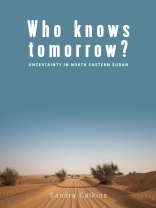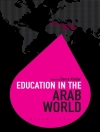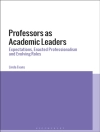Although uncertainty is intertwined with all human activity, plans, and aspirations, it is experienced differently: at times it is obsessed over and at times it is ignored. This ethnography shows how Rashaida in north-eastern Sudan deal with unknowns from day-to-day unpredictability to life-threatening dangers. It argues that the amplification of uncertainty in some cases and its extenuation in others can be better understood by focusing on forms that can either hold the world t...
İçerik tablosu
List of Illustrations
Acknowledgments
Notes on Transliteration
List of Abbreviations and Glossary
Map
Introduction: Taming Unknowns in Sudan
Chapter 1. ...
Yazar hakkında
Sandra Calkins is assistant professor for anthropology at the Free University of Berlin and a member of the Law, Organization, Science, and Technology group at the...












